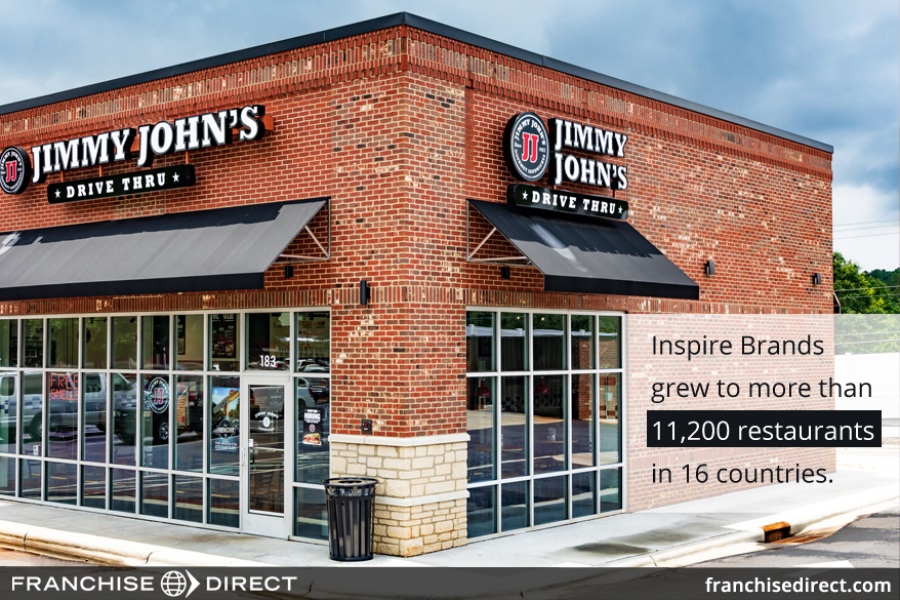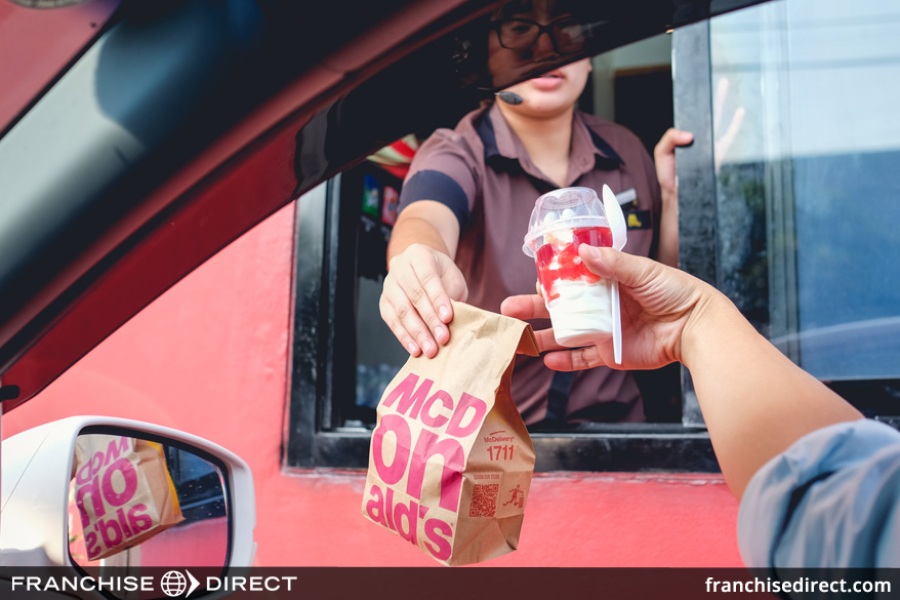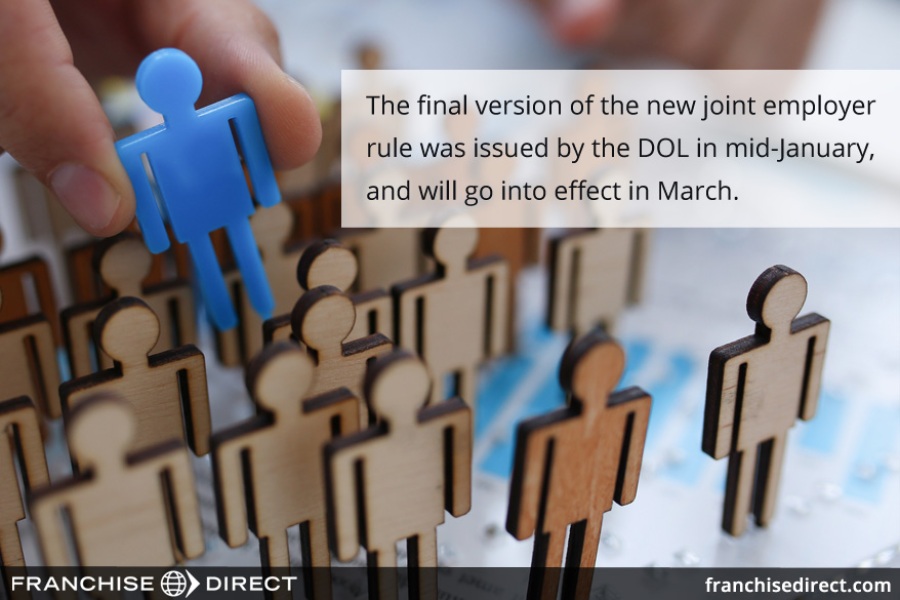
NOTE: For the first part of the report, click here.
Notable Franchise Corporate Changes
As per usual, there were a number of executive changes at top franchises over the course of the past year. Below is a roundup of some notable ones.
In last year’s report roundup of corporate leadership changes, we noted Bojangles’ sale to Durational Capital Management LP and The Jordan Company, L.P. Since then, a number of C-suite changes have been made at the chicken franchise including Jose Armario being named CEO and Brian Unger being named chief operating officer at the time of the sale.
Later in 2019, Reese Stewart was hired as CFO, Jackie Woodward was hired as Chief Marketing Officer, and Jose Costa was hired as Chief Development Officer.
In the spring, Ned Lyerly became the CEO of CKE Restaurants, the parent company of Carl’s Jr. and Hardee’s. Lyerly has been with the company over 30 years, most recently serving as President of international before taking on his new role.
Around the same time, George Condos, a fast food industry veteran also with more than three decades of experience, joined CKE’s board as chairman. Condos has previously worked at Arby’s, Dunkin’ Brands, and Dairy Queen.
In August, former Arby’s president Rob Lynch was named CEO of Papa John’s. The role had been performed on an interim basis by Steve Ritchie after the controversial departure of founder John Schnatter, who still owns between 15.4% and 16.7% of the pizza franchise.
At the time of his hiring, Papa John’s chairman Jeff Smith said of Lynch:
His proven record transforming organizations and realizing the growth potential of differentiated brands is ideally suited for Papa John’s as the company sets forth on its next chapter.
Arby’s promoted Jim Taylor from CMO to president as a result of Lynch’s departure.
Moe’s Southwest Grill named Erik Hess its new president in September. Hess, who came over from McDonald’s, replaced Bruce Schroder.

Subway had a host of corporate changes. It hired former Chairman and Chief Executive Officer at Burger King, John Chidsey, to the post of CEO for the sandwich franchise in November. Subway had been operating without a permanent CEO since June 2018 when Suzanne Greco retired. Interim CEO Trevor Haynes will continue with the company as president of North America operations.
Subway also has a new Chief Legal Officer in Ilene Kolbert, who replaced Bethany Appleby. The franchise also lost Len Van Popering, the company’s Chief Brand and Innovation Officer, whose position was eliminated in a corporate restructuring. Subway has hired at least six new senior-level executives since October.
In November, McDonald’s had to do some executive shuffling unexpectedly. Chris Kempczinski became CEO and president of McDonald’s Corporation, replacing the ousted Steve Easterbrook. Joe Erlinger was subsequently named McDonald’s USA President, and Ian Borden was named President of the franchise’s international division.
At the end of December, YUM Brands (KFC, Pizza Hut and Taco Bell) President and Chief Operating Officer David Gibbs succeeded Greg Creed as CEO. Creed is expected to remain on the company’s board. The company also created two new technology-related positions—Chief Digital and Technology Officer, and Chief Strategy Officer—in September. Those jobs were filled by Clay Johnson and Gavin Felder, respectively.
And at the beginning of this year, Paris Baguette USA Inc. promoted Darren Tipton to CEO of American operations. He replaced Jack Moran, who was promoted to global CEO for the bakery franchise.
But that’s not all, there were also a number of big franchise company acquisitions in the past year.
In September, Ace Hardware bought the Handyman Matters franchise to expand its imprint to in-house home improvement, which CEO and president John Venhuizen says its customers have been “basically begging” the retailer to do. The current Handyman Matters franchise locations will be rebranded as “Ace Handyman Services.”
Venhuizen told Business Insider:
It's this natural fit of bringing ‘helpful’ to the home, so that we have a service provider that can actually do it for the consumer. It fits naturally with what we’re known for and the trust that our brand has engendered in these communities.

Then In October, Arby’s parent company, Inspire Brands, acquired Jimmy John’s. Started in 1983, the sandwich franchise now has more than 2,800 stores in 43 states. With the acquisition, Inspire Brands grew to more than 11,200 restaurants in 16 countries.
Not to be left out of the M&A mix, Marriott International announced its intention to acquire Elegant Hotels Group plc, an hotelier of Caribbean luxury resorts on the island of Barbados, in October.
YUM Brands started off 2020 with the first major restaurant acquisition of the decade. The KFC, Pizza Hut and Taco Bell parent company bought The Habit Burger Group, owner of The Habit Burger Grill, giving the Louisville, Kentucky-based conglomerate a fast casual burger chain. The Habit will continue to be run from its Irvine, California base.
Also, TGI Fridays has become a public company again as the result of a sale to Allegro Merger. The deal was announced in November.
And, though no move was made, rumors abound that Restaurant Brands International plans to acquire a fourth brand. The company, which serves as the parent of Burger King, Tim Hortons and Popeyes, has been the focus of many reports suggesting what would be a seismic merger with Domino’s. Other reports hinted at bringing a restructuring Papa John’s into the fold.
GOT ALL OF THAT?
If you think there’s been a lot of mergers and acquisitions in the franchising world over the last few years, you’re right. In an effort to keep things straight, here’s our resource on who owns which franchise companies.
Legal Ledger
The legalities of franchising continue to be an area of debate across the country. For five years now, the joint employment debate has been a recurring theme. A theme that got another chapter in 2019.

Last year, a settlement was proposed, but later rejected. In the December ruling, the NLRB panel instructed the judge to reinstate the 2018 settlement. According to a NPR report, the ruling is expected to be appealed.
However, the NLRB hopes that the case won’t have to be used to as precedent for joint employer law in the future. At the beginning of April a proposal was issued by the U.S. Department of Labor (DOL) that would update the rule for joint employment using a multi-part test.
Under the proposal, companies would be considered a joint employer if they possess the ability to:
- Hire, and fire employees,
- To supervise and control schedules;
- Set the employees’ pay, and...
- Maintain employment records for those employees.
The final version of the new joint employer rule was issued by the DOL in mid-January, and will go into effect in March.
As expected, the rule is based off of the four factors above, but the ability of a company to perform any of the four functions isn’t the most important thing in determining whether a company is a joint employer of an employee. The DOL is now looking for exercise of control as a major determinant.

At the state level, in early May, the Alabama State Senate attempted to pass legislation named the Protect Alabama Small Business Act (SB129) to regulate franchise contracts.
The biggest takeaway from the proposal is that private franchise contracts would be codified into Alabama state law, meaning in case of franchisor-franchisee legal action the case would have to be litigated in Alabama. Most franchise agreements have provisions that legal actions are subject to the state of the franchisor’s headquarters.
The passing of the act by the Alabama State Senate uncovered a big difference of opinion concerning its potential utility. The Alabama Franchisee Association supported the potential legislation, arguing the franchisees rights to protection of unjust terminations, restrictions, and other items.
On the other side, the International Franchise Association (IFA) sent a letter to the state—signed by more than 80 franchise brands, including Hilton, The UPS Store and McDonald’s—that in part said that the “legislation undermines the very key to franchising—a brand's standards of safety, quality and operation.”
After deliberation, SB129 was struck down by the full Alabama House of Representatives.
Going forward franchise officials are also paying close attention to California Assembly Bill 5, which went into effect January 1.
The bill focuses on how to determine whether a worker is an employee or an independent contractor. According to industry experts, franchisors in the state are concerned about being subject to satisfying each element of California’s standard employment ABC Test in order to deem franchisees and their employees as not employees of the franchisor.
However, it’s believed that California AB-5 isn’t directed at the regulation of franchise relationships. Instead the law, largely takes aim at “gig economy” companies such as Uber, Lyft and DoorDash.
To combat the confusion, Assemblywoman Lorena Gonzalez, the primary champion of the bill in the legislature, says there are plans in place to change wording in the legislation to address some concerns not already accounted for in the law’s current form.














